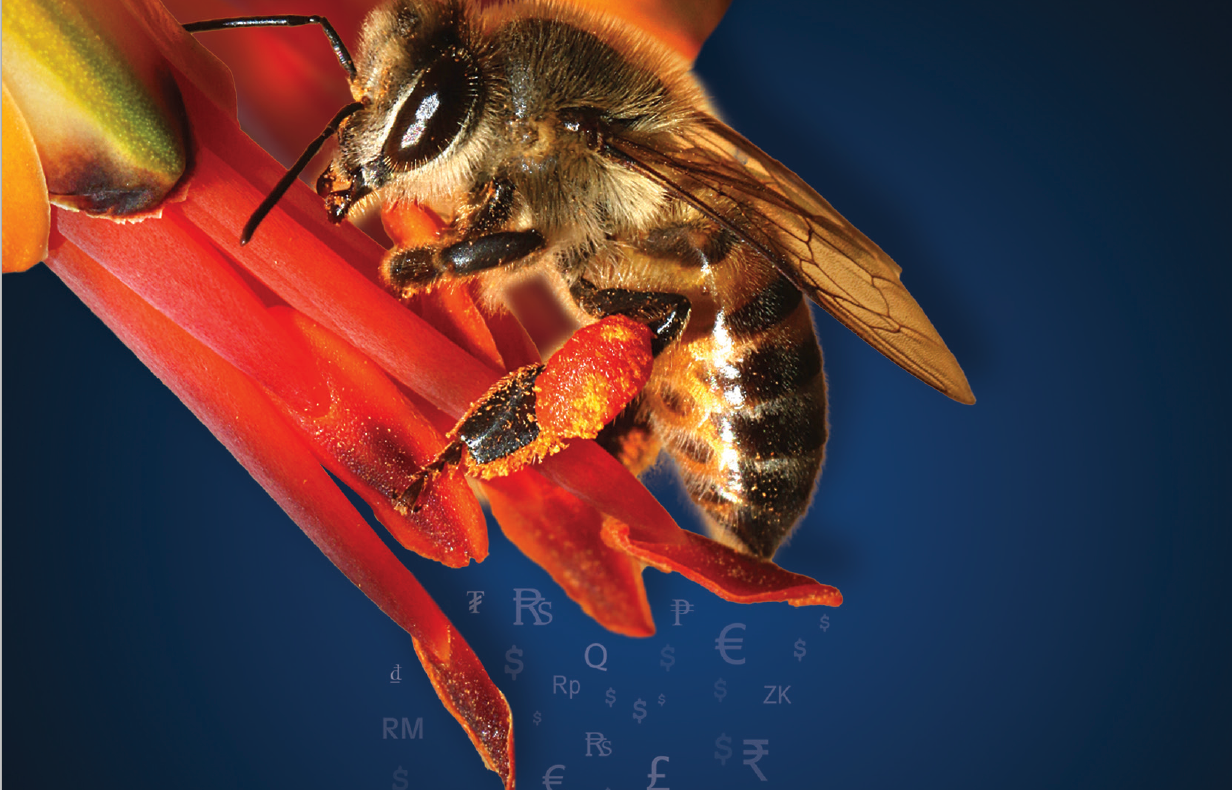
Biodiversity finance is a key issue at the upcoming UN Biodiversity Conference in Sharm, El Sheikh, Egypt from 14-29 November. Governments and organisations will work to step up efforts to halt the biodiversity loss and protect the ecosystems that support food and water security and health for billions of people.
At COP 14, Parties to the Convention will discuss efforts needed to achieve the Aichi Biodiversity Targets as well as lay the groundwork for the process of developing the successor of the current Global Strategic Plan for Biodiversity 2011-2020, termed the 'New Deal for Nature'. COP 14 will also include innovative discussions on mainstreaming biodiversity into five core sectors of the economy: infrastructure, mining, energy and gas, manufacturing, and health.
Finance for conservation has for a long time been neglected as a development priority. With the growing realisation that nature-based solutions are an essential part of any strategy towards achieving the Sustainable Development Goals, it has become a central issue for ministries of finance.
A wealth of learning has been generated in the past decades of working on a wide array of finance solutions using all possible sources, utilising many different mechanisms. To date, almost 160 types of biodiversity finance have been documented.
The advent of the SDGs, the adoption of the Paris Climate Accord and the upcoming development of a post 2020 Strategy for Biodiversity present a unique opportunity to shape the biodiversity finance agenda of the future.
BIOFIN is hosting two key events during the COP 14, as well as involvement in a wide range of activities and events throughout the negotiations.
High Level Event
Solutions to financing nature for the Post 2020 Era – a breakfast dialogue with finance leaders
15th November
UNDP and its BIOFIN programme together with the CBD will host a finance leaders event at COP 14, marking the first ever dialogue led by finance ministers at a CBD COP. Finance leaders will discuss how lessons from BIOFIN Implementation under the first phase (2012 – 2018) can inspire a new financing agenda for biodiversity in the upcoming decade beyond the Aichi 2020 biodiversity targets, embedded into financing frameworks for the SDGs.
If you would like to receive an invitation to the event, please write Semiray.emeksiz@undp.org
Side Event
Innovative finance solutions - a first generation of biodiversity finance plans (BIOFIN)
18th November | 13.15pm | Aswan - JUSCANZ Room
In BIOFIN's side event participants will enjoy lively discussion and hear from speakers about the breadth of finance solutions countries selected for their Biodiversity Finance Plans. Discussions will focus on BIOFIN's Catalogue of Biodiversity Finance Solutions, which catalogues nearly 160 finance solutions available to countries to adopt and implement to fulfil their biodiversity finance needs. During the event, the new 2018 edition of the flagship BIOFIN Workbook will be launched. The Workbook is the comprehensive methodology at the foundation fo the BIOFIN process. First published in 2014 and updated in 2016, the new workbook incorporates the evolving lessons and builds upon five years of implementation of the BIOFIN process in 30 countries.
Side Event
Ways to increase funding for biodiversity - the case of Georgia as a BIOFIN country
27th November | 18:15 | (M3-IGOs Room, Building 2)
Georgia is fortunate to be endowed with rich biodiversity. Parts of two globally important and threatened biodiversity hotspots (out of a total of 34 hotspots worldwide), namely the Caucasus and Irano-Anatolian biodiversity hotspots, are located within its borders. Biodiversity and ecosystem services make a highly significant contribution to the Georgian economy. It also supports livelihoods and key sectors in the economy including forestry, tourism, agriculture, water and energy (hydroelectricity in particular). Healthy ecosystems play a key role in disaster risk reduction, climate change adaption and mitigation.
The factors like poverty, lack of awareness, legislative gaps, limited administrative resources for law-enforcement etc. affect biodiversity through degradation and fragmentation of natural habitats, excess utilization of natural resources, environmental pollution. As a result, many plant and animal species have become endangered to the point where the Red List of Georgia contains 139 animal species and 56 wooded plant species. Of these, 43 of the animal species and 20 of the plant species are categorized as endangered or critically endangered. In addition, 44 vertebrate species are considered globally threatened and included in the IUCN Red List as vulnerable or endangered.
The Biodiversity Finance Initiative (BIOFIN) has been implementing a series of technical assessments on biodiversity policy, institutions, expenditures and financial needs. According to BIOFIN studies, the current financing levels for biodiversity are inadequate. The BIOFIN Financial Needs Assessment (FNA) shows that they do not cover the anticipated costs of achieving the goals of the National Biodiversity Strategy and Action Plan (NBSAP).
Objectives of the event are to:
- Present the challenges related to biodiversity conservation in Georgia
- Explore the process of analysis and prioritization of opportunities to improve resource mobilization
- Solutions to address existing challenges
__________________________________
For more information about BIOFIN events contact:
James Maiden, BIOFIN Communications Specialist
james.maiden@undp.org
Categories
Archives
- April 2024 (4)
- March 2024 (3)
- February 2024 (6)
- January 2024 (3)
- December 2023 (1)
- November 2023 (7)
- October 2023 (5)
- September 2023 (2)
- August 2023 (3)
- July 2023 (1)